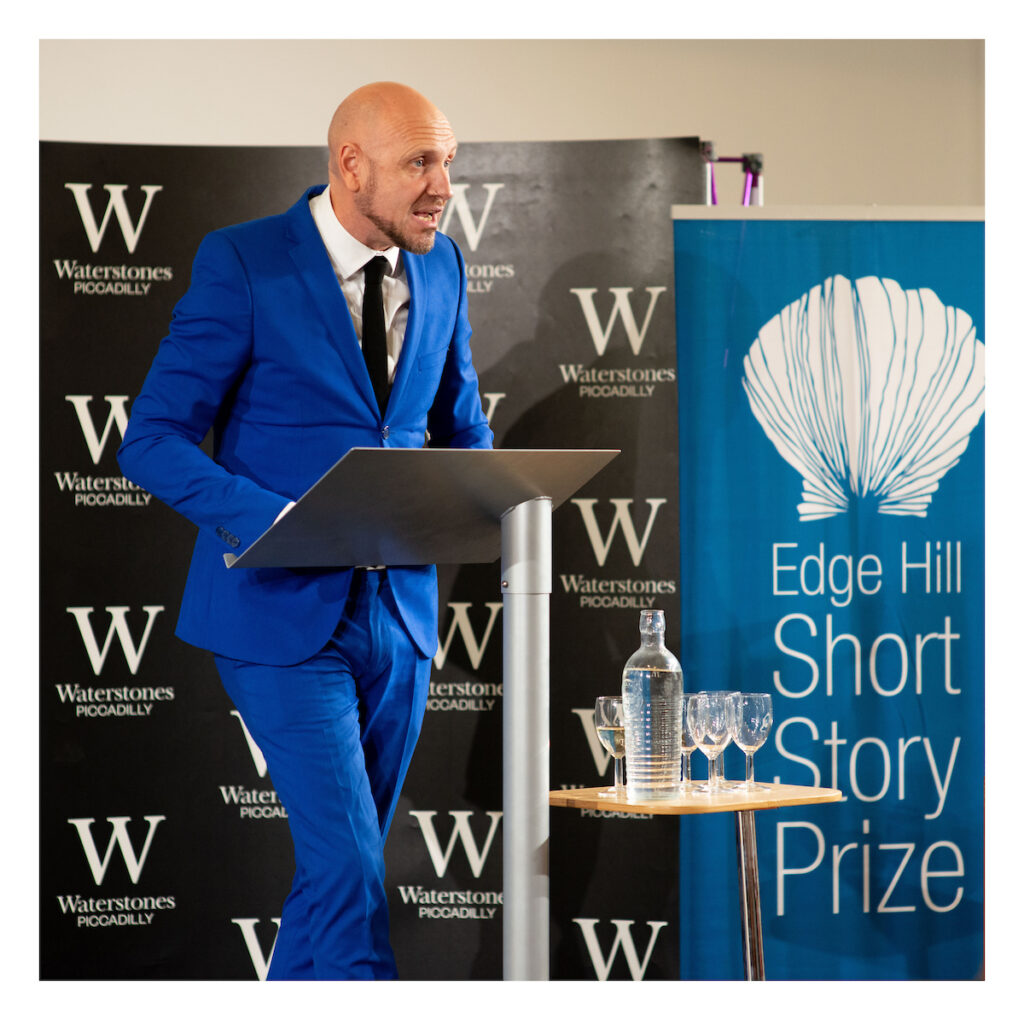
Billy Cowan, senior lecturer in creative writing and organiser of the 10K prize, tells us what he personally looks for in a short story and a short story collection:
- In medias res – I want to be launched into the world of the character and their story at the deep end not held by the hand and carefully guided in with heavy exposition and lots of back story.
- I want prose that feels effortless as if it has just spilled out of the writer’s subconsciousness without careful consideration, construction or editing. This isn’t to say I don’t want beautifully constructed sentences. I do, but they must feel natural as if there was no other way to express the ideas being expressed. Jessie Greengrass whose collection An Account of the Decline of the Great Auk, According to One Who Saw It won the 2016 Prize writes immaculate, complex sentences that feel effortless and natural.
- I want a unique author’s voice. Having read thousands of short stories, I know that too many of them have the same middle-class, educated voice – polite, passionless, self-aware and reflective. F–k that! Let me hear from writers who don’t sound like they were brought up in a house where daddy was a doctor and mummy was a barrister. This isn’t to say I have anything against middle-class writers, I certainly don’t. I just want the prose to be more messy; to feel less controlled sometimes. (Read Levitation by Sean O’Reilly or Man Hating Psycho by Iphgenia Baal).
- I don’t want lots of description of details that don’t matter. Do we really need to know about every item in a room? No. A couple of things that encapsulate character, set tone and mood, that should do it.
- I want clean, simple sentences and dirty, complicated lives. Check out Rosemary Jenkinson’s Lifestyle Choice 10mg.
- More dialogue. Many writers are obsessed with their own voice and not their characters. Or they get lost in the internal thoughts of their characters. Dialogue counterbalances this. It creates white space on the page, breathing space for the reader.
- The writing must be economical with a touch of lyricism. Too many writers approach the short story as if it’s a novel they’re commencing; as if they’ve got all the time and space in the world to tell their story. They haven’t. I don’t want to be reading a short story that is 10,000 words long, even 5000 words long. The clue is in the name – short. Lots of collections that are entered into the prize contain novellas. This irritates me and sometimes ruins the experience of reading the book. I want to be able to pick the book up and complete one story in one sitting. Look at the 2019 winning collection Turbulence by David Szalay or Send Nudes by Saba Sams for beautiful economical writing.
- I know this next one might be controversial, but I find stories about place to be particularly boring and this is because the writers tend to spend too much time describing the physical environment. Writers who love writing about place often justify this by saying that place should be seen as another character in the story, but for me flesh and blood characters are far more interesting. A story or a collection inspired by a place is fine as long as the writer doesn’t hammer this fact home. Read Fen by Daisy Johnson to see how to write about place in a way that doesn’t bore.
- I want to be moved in some way by the end of the story, though how the writer achieves this is where the magic lies. Every story in Tessa Hadley’s 2018 winning collection Bad Dreams moves us in some way. With a collection, the culminative effect of all the individual stories should also have some kind of impact.
- There must be wisdom or insight on the page and in between the lines. Or there needs to be an individual point of view, perspective on the world. Check out Lara Williams, Anneliese Macintosh, Miranda July and Sarah Hall who all have a unique way of looking at and writing about the world.
- Technical virtuosity and clever or experimental writing where the writer shows off syntactic brilliance for example, doesn’t interest me unless it also moves me and has wisdom and insight in between the lines.
- I love connections/links between individual stories in a collection – characters that stray into one story from another; recurring themes; different stories triggered by the one event or by one character; stories set in one location. The ways in which stories can be connected or linked are limitless. Check out Tom Rachman’s Basketful of Deplorables and Szalay’s Turbulence for unique ways of linking stories.
- I like stories that feel intimate as if the writer is letting me in on a secret, showing me a private world that only they know. I think the key to this is truth – stories need to feel truthful. I love stories that are autobiographical or feel autobiographical even if they aren’t. Anneliese Mackintosh’s 2015 shortlisted collection, Any Other Mouth is a powerful book that feels like autobiography.
The above views are Billy’s own and do not reflect any kind of criteria for the Prize.
